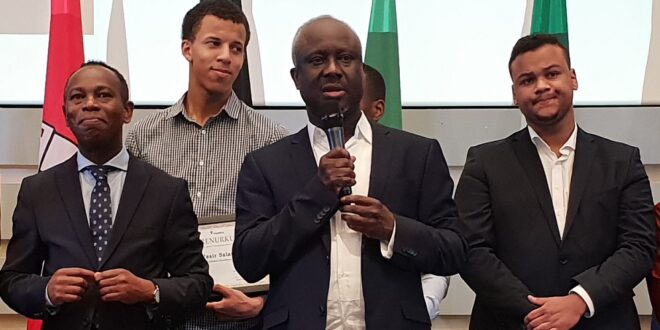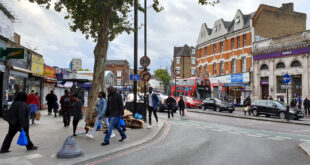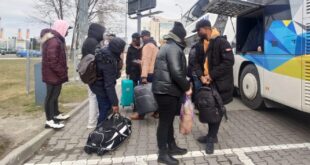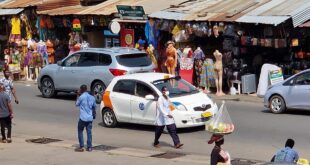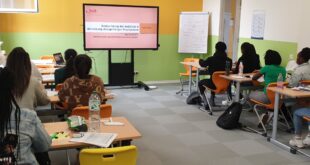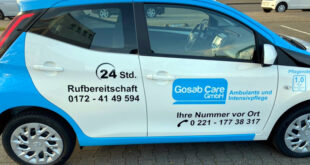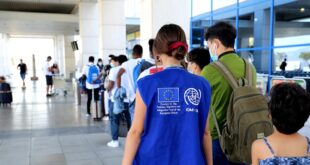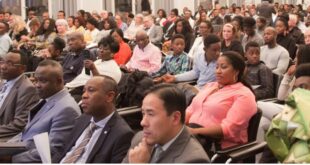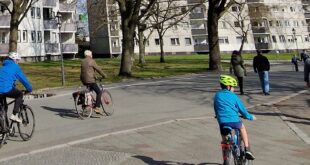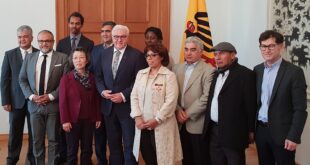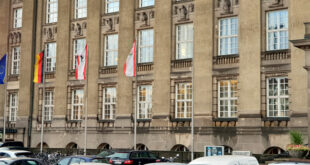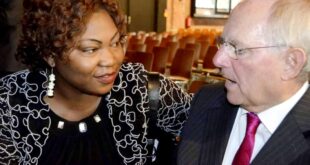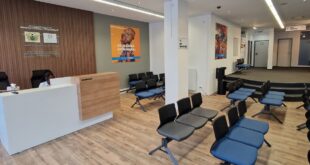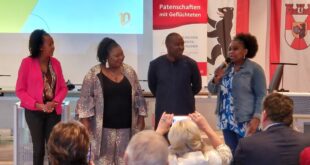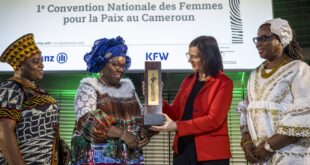The African Youth Education Awards (AYEA) is an initiative to promote higher educational achievements among youth in African-origin communities in Germany.
Every year, young people who have excelled in their educational and training careers are honoured with AYEA at a colourful ceremony in Hamburg.
AYEA was initiated in 2010 to act against the observed low educational attainment levels of African-origin youth, which has been partly blamed on lack of motivation.
To tackle this underachievement, the scheme also encourages successful African professionals, including lawyers, doctors, teachers and technicians, to mentor youths. It’s believed that positive role models from within their own communities will inculcate a higher sense of self-efficacy in the youths and push them to achieve their potential.
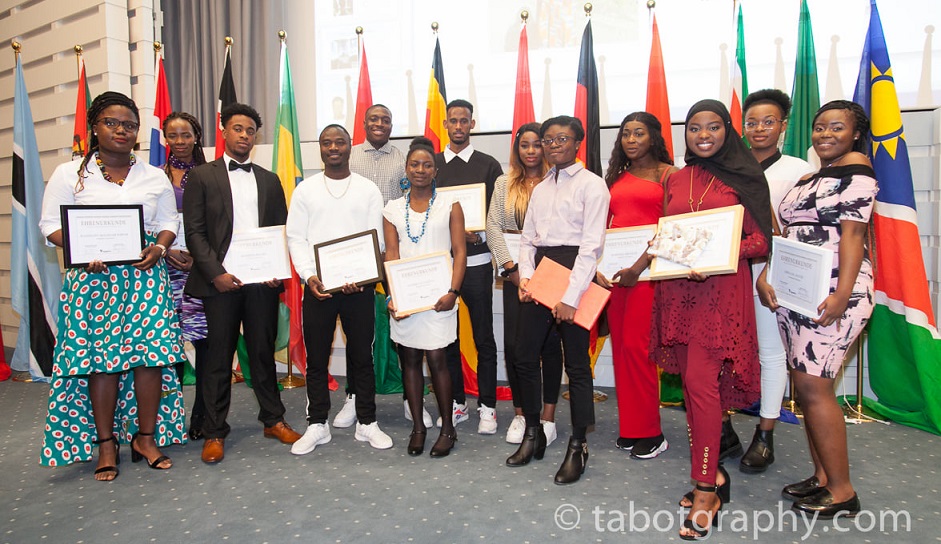
Moreover, the founders of AYAE are convinced that raising the aspirations of Black youth would enable them to make an even greater contribution – socially, economically, culturally and politically – to Germany.
AYAE has received positive recognition not only among German government officials but also African diplomatic representatives in the country.
In an exclusive interview with the Ghanaian-born Desmond John Beddy, founder of AYEA and President of TopAfric e.V., a non-governmental organisation, he talks about the scheme.
How did it all begin?
As of 2010, according to the Federal Statistics Office, only about 3 per cent of Africans had received a tertiary education or successfully learnt a vocational or technical trade in Germany. The ratio among native Germans who had studied or learnt a trade was about 25 per cent.
So, the figures showed that we had a problem to which we must find a solution.
What did you find was responsible for the situation?
We observed that role models and motivation were missing, and this was mostly responsible for the situation. This is what gave birth to AYEA in 2010.
What gave you the confidence that you could positively affect the situation?
We were encouraged by the fact that about 30 per cent of Cameroonians in Germany are considered highly educated. If Cameroonians could obtain an education, others can.
Moreover, quality education is available in Germany; accessing education is not a problem and, above all, it is almost free.
Has the situation changed today?
We bring medical practitioners, professors, lawyers, engineers, diplomats, actors and successful businesspeople of African origin together with children from vulnerable homes.
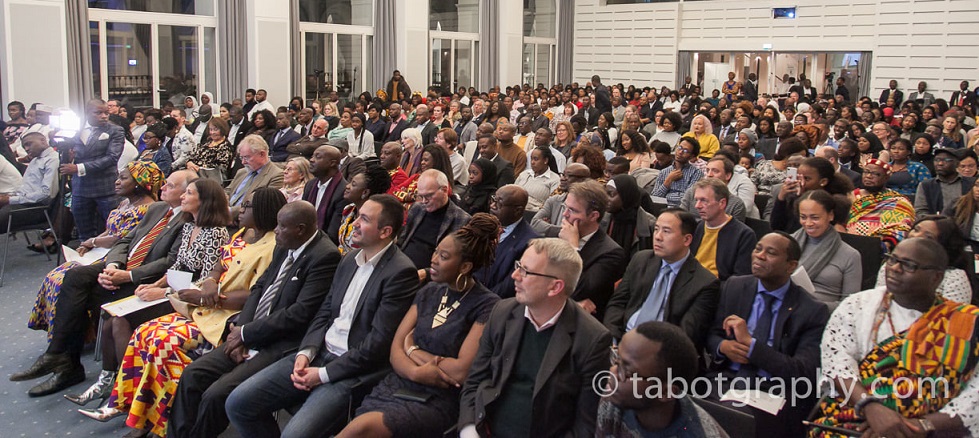
The perspectives of these children change for ever as they see that Black people can be, and are, successful in a wide range of careers.
We have not only succeeded in organising the AYEA annually in Hamburg since then, but we have also succeeded in raising awareness of education in the various communities.
What are the major challenges confronting African students in Germany?
Though there are common challenges faced by the students, one must categorise the students as those coming directly from Africa, from wealthy homes and poor homes, and those born in Germany or brought here at an early age.
The problems include the difference in climate for newcomers; the winter season is a horror. Loneliness is also an issue; racism was not known to most of these students until they arrived in Germany.
Language deficiency is mostly a problem for first-degree students, along with cultural adaptation and ICT deficiency, especially for those from poor homes who have had no access to computers of their own.
Financial problems exist; some have to work full-time to take care of their basic needs, while some do not find jobs and thus depend on good Samaritans.
The most disturbing observation is that those born and bred in Germany look down on those coming directly from Africa. They are programmed to think that because these are not educated in Germany and cannot speak German fluently, they are inferior.
What can the state still do to support children with a migration background due to their peculiar challenges?
Personally, I think we focus too much on what others can do for us, rather than what we can do for ourselves.
We should be able to mobilise resources, both capital and human, within before looking outside. If you identify your challenge as lack of motivation and lack of role models, you first and foremost have to seek assistance from within. However, unfortunately, this has never been the case.
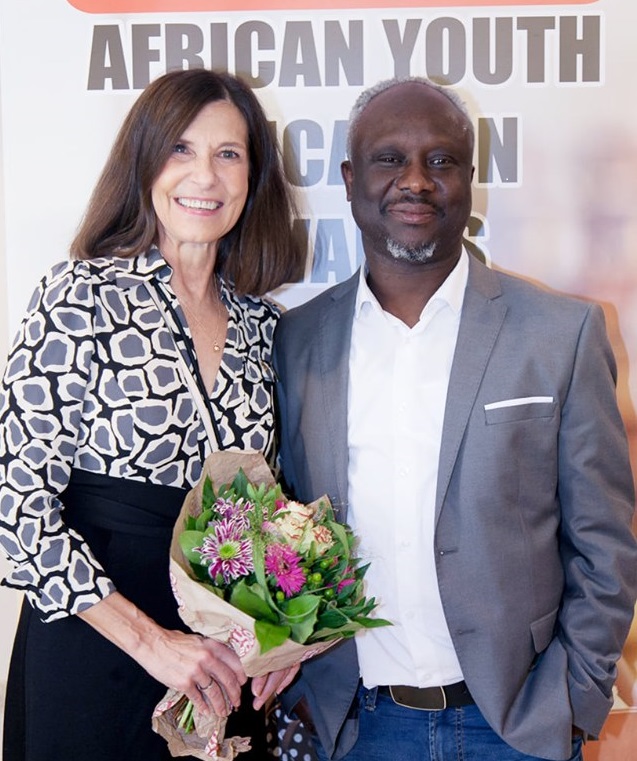
All we seek to do is to expose our kids to the successful people in our communities. The kids get to see and understand that they are also capable when they put in some effort! Sincerely speaking, the state cannot be responsible for this.
My only grouse with policymakers is that they do not involve or ask for the opinion of migrants when taking decisions affecting migrants. The attitude of “doing it for them” has never yielded the desired results. We [community activists] are with the people daily and know their needs.
READ ALSO Book: Ghanaians in Germany – Past, Present and Future
The needs of migrant communities are not the same all over; the Chinese, the Turks and Ghanaians in Germany will not have the same problems, nor take the same approach in addressing their challenges.
How much of an obstacle is racism to the progress of Africans in Germany?
Racism is a problem in Germany. Until recently, the political leaders refused to accept that it exists. As people of colour, we face racism daily in schools, universities, when visiting our private doctor, in our workplaces or when seeking jobs. Far-right violence has been increasing, and most often, the culprits go unpunished or are not punished severely.
One can conclude that racism is institutionalised in Germany, thus making it difficult to fight, especially against those who hide in their offices under the pretext of doing their work diligently.
For far too long we have waited on the system to liberate us, and I don’t think this will happen soon.
The most effective means of fighting the cancer is through political and economic empowerment.
What are the challenges facing the initiative?
We need funding to take care of the ever-increasing administrative work, to plan and organise the event, and coordinate and publish the yearly AYEA Magazine.
We need to expand the award categories to include the best Master’s and PhD students. We need regional partners to send their best students every year to Hamburg. We need to expand the selection committee.
We would like to keep track of each enrolled student’s progress in school. Tackle any difficulties that might be hindering them from attending or finishing school, help them to make the right decisions as to what to study, keep records of all enrolled students in the higher education system in Germany. Help them with petty hindrances which might develop into bigger problems and help them with petty cash issues.
We need to work on these issues; otherwise, initiatives such as AYEA could die quickly without the support of state institutions and foundations.
———
[AYEA was started by Lawyer Assignon K. Akakpo (Togo), Lawyer Iyare Imasi (Nigeria), Ba Hawa Fofana (Mali) and Desmond John Beddy from Ghana with the support of TopAfric Radio presenters. There are more than 40 community leaders – from Ethiopia, Uganda, Kenya, Togo, Nigeria, Burkina Faso, Germany, Ghana, Sierra Leone, Cameroon, Zambia, Ivory Coast, Romania, Benin and the Caribbean – who plan and implement the yearly event]
More about African Youth Education Awards at www.ayeawards.de
 THE AFRICAN COURIER. Reporting Africa and its Diaspora! The African Courier is an international magazine published in Germany to report on Africa and the Diaspora African experience. The first issue of the bimonthly magazine appeared on the newsstands on 15 February 1998. The African Courier is a communication forum for European-African political, economic and cultural exchanges, and a voice for Africa in Europe.
THE AFRICAN COURIER. Reporting Africa and its Diaspora! The African Courier is an international magazine published in Germany to report on Africa and the Diaspora African experience. The first issue of the bimonthly magazine appeared on the newsstands on 15 February 1998. The African Courier is a communication forum for European-African political, economic and cultural exchanges, and a voice for Africa in Europe.

